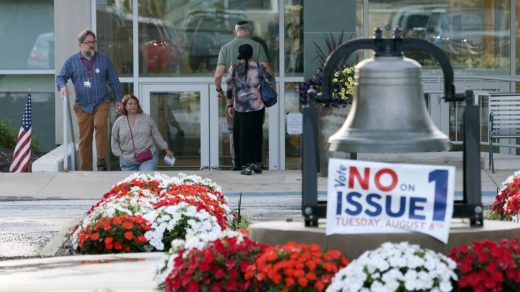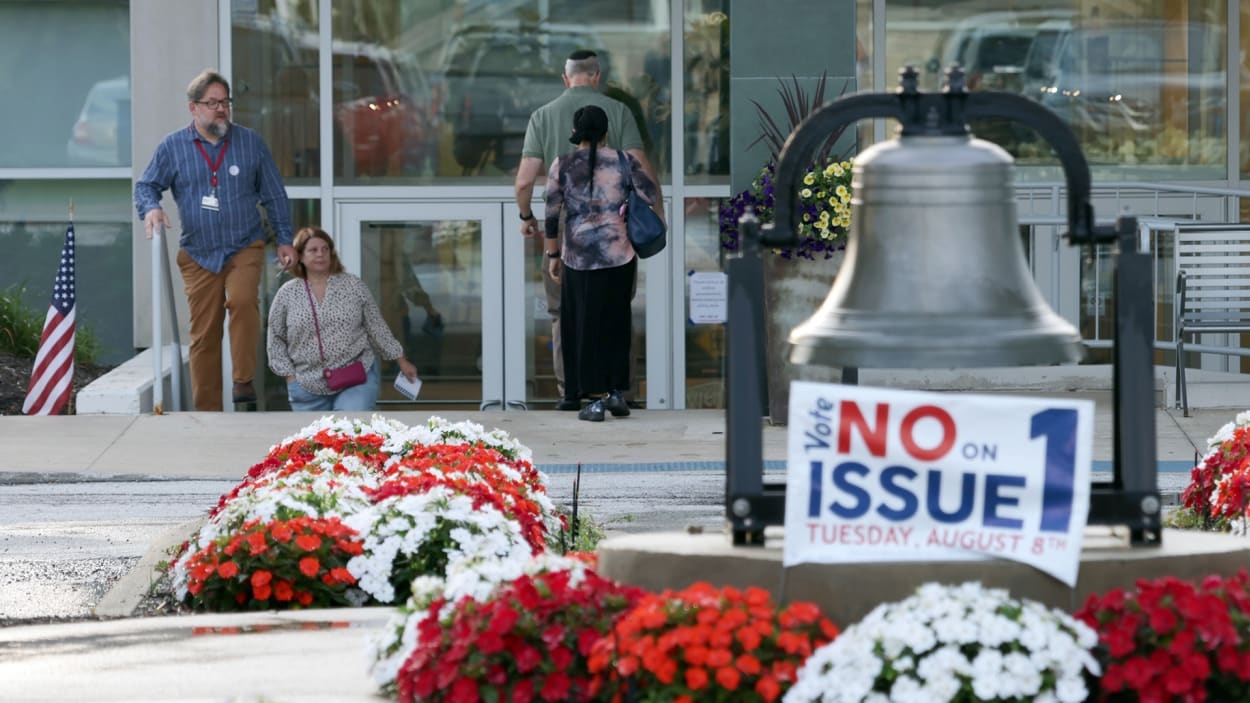Ohio lawmakers know that no one votes in August, so they put a single crucial question on the ballot
Voter turnout in August primaries is notoriously low, especially in Ohio, where last year less than 6% of the state’s population voted in the August primary—or about or 631,000 people—despite a cost of $20 million taxpayers. So it made sense when Ohio legislators ended the practice of regularly holding elections in August.
But then a few months later Republicans, who control the legislature, changed their minds, putting a single question on the August ballot that Ohio residents will vote on today.
The ballot measure, called Issue 1, sounds a little wonky and unexciting, but it will have a major impact on future elections (which is exactly why Republicans put it on an August ballot). If Issue 1 passes, it will raise the threshold needed to approve constitutional amendments from a simple majority to 60% of the vote. Ohio Republicans aren’t even being coy about why they are holding the vote today. Frank LaRose, the Republican Secretary of State, said: “This is 100 percent about keeping a radical pro-abortion amendment out of our constitution.”
The amendment that’s on the November ballot in Ohio would protect abortion rights in Ohio’s constitution by establishing “a fundamental right to reproductive freedom” with “reasonable limits.” The amendment would mirror the standards that were previously in place under Roe v. Wade (focusing on patient health and safety). The language in the proposed Ohio amendment is strikingly similar to a constitutional amendment that Michigan voters approved last November with a 57% majority.
When the Supreme Court overturned Roe v. Wade last year, Ohio enacted an abortion ban that starts at six weeks of pregnancy—effectively a total abortion ban with no exceptions. However, a lower court has issued a stay, and that ruling is currently being appealed.
Since Michigan’s constitutional amendment passed last November, the state has seen a 66% increase in abortion patients from neighboring states like Indiana and Ohio with strict bans in place. Republicans in other states are watching Ohio’s election closely today as they consider ways to make it harder to pass ballot initiatives in Florida, Idaho, Missouri and other states. Florida already requires that ballot initiatives get 60% of votes to pass.
There are signs that state Republicans’ scheme might not go according to plan. Today’s vote has already garnered a lot more attention than most sleepy summer special elections, with more than 500,000 Ohioans casting an early vote on Issue 1.
(15)



